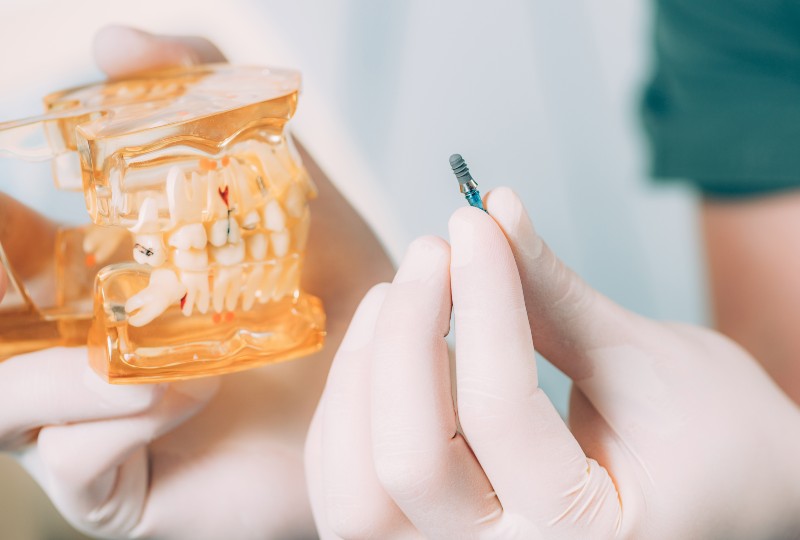Dental implants have revolutionized modern dentistry, offering a durable and effective solution for replacing missing teeth. Despite their high success rate, it’s important to be aware of the factors that can lead to implant failure. This article explores the symptoms of dental implant failure, the risk factors involved, and preventive measures to ensure long-term success for both patients and dental professionals.
Understanding Dental Implant Success
With a success rate nearing 95%, dental implants are highly reliable when proper care is taken. The cornerstone of this success is osseointegration, the fusion of the implant with the jawbone, which ensures stability and longevity. Key elements contributing to successful implants also include accurate surgical procedures, the patient’s health status, and maintaining good oral hygiene.
What Are the Signs of Dental Implant Failure?
Spotting dental implant failure early can help prevent complications. Symptoms can vary from person to person, both in type and intensity. Some discomfort is normal right after getting an implant, but ongoing problems can signal trouble. Early implant failure means the implant shows clinical mobility or the implant site becomes inflamed or swollen. This often happens due to two main factors: peri-implantitis and failed osseointegration, which we will explain later.
Below are the signs to watch for and when to be concerned:
- Persistent pain or discomfort
- Swelling or inflammation around the implant site
- Difficulty chewing or biting
- Loose or shifting implant
- Receding gums around the implant
- Unusual bleeding around the implant area
Types of Dental Implant Failure
- Early Failure: Occurs shortly after placement due to lack of osseointegration (the implant not bonding properly with the bone) or peri-implantitis (infection).
- Late Failure: Develops after the implant has been in place for a while, often due to mechanical overload or ongoing infection.
Risk Factors for Dental Implant Failure
Dental implants rely on several critical factors for success: a healthy jawbone, skilled surgical placement, and consistent aftercare. Disruptions to any of these can lead to failure. Factors such as infections, insufficient bone density, smoking, poor oral hygiene, and gum disease play significant roles.[1][2] Neglecting follow-up care and ignoring symptoms can also contribute to complications. These are the most common reasons dental implants fail:
Infection (Peri-implantitis)
Peri-implantitis refers to an infection that targets the tissues around the dental implant, resulting in swelling and bone loss. This condition can develop when bacteria contaminate the implant site, either during or after the surgery, and can cause the implant to fail if left untreated.
Poor Bone Quality
The success of a dental implant is heavily influenced by the quality of the surrounding bone. Insufficient bone density or softness can impair the implant’s ability to stay firmly in place, leading to instability and possible implant failure if not addressed.
Insufficient Bone Volume
When the jawbone lacks sufficient volume, it can impede the implant’s ability to fuse effectively with the bone. To address this issue, bone grafting techniques might be needed to augment the bone and ensure a stable foundation for the implant.
Smoking and Health Conditions
The presence of smoking and certain health conditions, such as diabetes, can reduce the body’s natural healing capacity, making dental implants more susceptible to failure. These factors can diminish blood flow and impede the healing process, affecting the long-term success of the implant.
Bruxism (Teeth Grinding)
Grinding or clenching teeth, referred to as bruxism, can cause excessive stress on implants, increasing the risk of mechanical failure. Employing a nightguard can help minimize this risk by providing a protective barrier.
Surgical and Design Factors
Errors in surgical technique and inadequately designed implants can affect how well the implant integrates and remains stable, leading to failure. Certain implant models or materials may not connect effectively with the bone or could be more prone to mechanical issues, affecting the implant’s longevity.
Lack of Care
Failing to practice proper oral hygiene and missing regular dental check-ups can lead to plaque formation and infections around the implant. Effective dental care and regular professional evaluations are key to the long-term durability of dental implants. Here’s a guide to dental implant aftercare.
Can a Failed Dental Implant Be Repaired?
Yes, a failed dental implant can be repaired, with the method depending on the nature of the failure. Remedies might include cleaning the site, replacing the implant, or undertaking bone grafting procedures to reinforce the bone foundation. The specific treatment will be tailored to address the root cause of the implant’s failure.
What to Do if You Suspect a Failed Dental Implant?
If you have concerns that your dental implant may be failing, prompt professional intervention is essential. Contact your dentist right away or book an appointment at New You Dental Center for an in-depth evaluation. It’s important to address potential issues early to avoid more severe complications. Your dental professional will assess the situation thoroughly and suggest the most effective treatment options to manage and resolve the problem.
Schedule an appointment for dental implants in Michigan
Sources
- Dutta SR, Passi D, Singh P, Atri M, Mohan S, Sharma A. Risks and complications associated with dental implant failure: Critical update. Natl J Maxillofac Surg. 2020 Jan-Jun;11(1):14-19. doi: 10.4103/njms.NJMS_75_16. Epub 2020 Jun 18. PMID: 33041571; PMCID: PMC7518499.
- Kochar SP, Reche A, Paul P. The Etiology and Management of Dental Implant Failure: A Review. Cureus. 2022 Oct 19;14(10):e30455. doi: 10.7759/cureus.30455.
